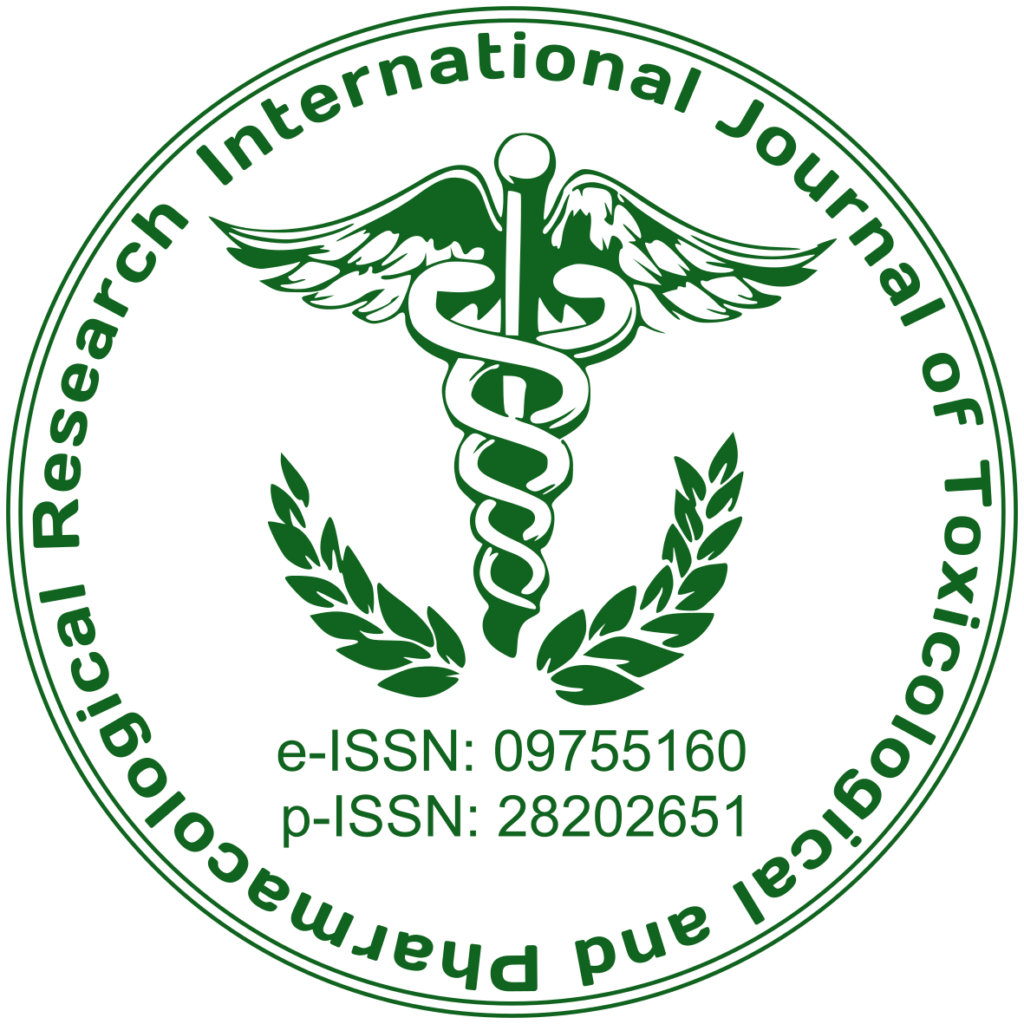Tripathi Sarojni, Srivastav Ajai Kumar
Sathaye S, Amin P, Mehta V, Zala V, Kulkarni R, Kaur H, Redkar R
International Journal of
Toxicological and Pharmacological Research
e-ISSN: 0975 5160
p-ISSN: 2820-2651
Peer Review Journal


1. Toxico-pathological alterations in the liver of cadmium treated rats.
Tripathi Sarojni, Srivastav Ajai Kumar
Abstract
Male Wistar rats were randomly divided into three groups — A, B and C. Cadmium chloride was administered orally to two groups at a dose of 5 mg/kg b wt/day to group B and 10 mg/kg b wt/day to group C. Rats from group A served as control. Rats were sacrificed on 1st, 2nd, 4th, 6th and 8th week after initiation of the experiment. Liver were removed immediately, fixed in Bouin’s fixative, routinely processed and stained with hematoxylin and eosin (HE). In rats administered with cadmium, histopathological changes have shown that the hepatic parenchyma is a target to the toxic action of this heavy metal. The most frequent alterations noticed were hepatocytic hypertrophy and vacuolation, degeneration of hepatocytes and their nuclei, hyperchromatic and hypertrophied nuclei, sinusoidal dilation and focal necrosis. However, variable intensities of these changes were noticed depending upon the doses and duration of the treatment
2. Immunomodulatory Activity of Aquous extract of Murraya koenigii, L in Experimental Animals.
Sathaye S, Amin P, Mehta V, Zala V, Kulkarni R, Kaur H, Redkar R
Abstract
Murraya koenigii (Linn) Spreng (Indian curry leaf) is a highly valued culinary plant for its characteristic aroma with the aqueous extract of its leaves reported to exhibit diverse biological activities viz., hyperglycemia, inflammation and hepatitis. The objective of this study was therefore to investigate effects of antioxidant-enriched nutritional dietary herb on immunological parameters that are found to be affected in diseased state including alcoholic liver disease (ALD). Acute toxicity studies were carried out on female Swiss mice and LD was evaluated with its effects on mortality or any changes in autonomic disturbances and behavioral pattern. The aqueous extract was subjected to in vitro DPPH activity 50 at different concentrations against ascorbic acid and high doses of 1 g/kg and 2 g/kg (MK1 and MK2) was objectively evaluated for its immunomodulatory potential in Wistar rats. MK1 and MK2 produced decrease in cell-mediated immune response (30.05% and 55.36% suppression of inflammation, respectively) whereas MK2 extract comparatively reduced antibody titer on all 7th, 14th and 21st days. In conclusion, the extract exhibited good immunomodulation through antioxidant and immunosuppressant mechanisms that could be crucial in treatment of ethanolic liver injury wherein immune stimulation or autoimmunity is involved in its pathogenesis.